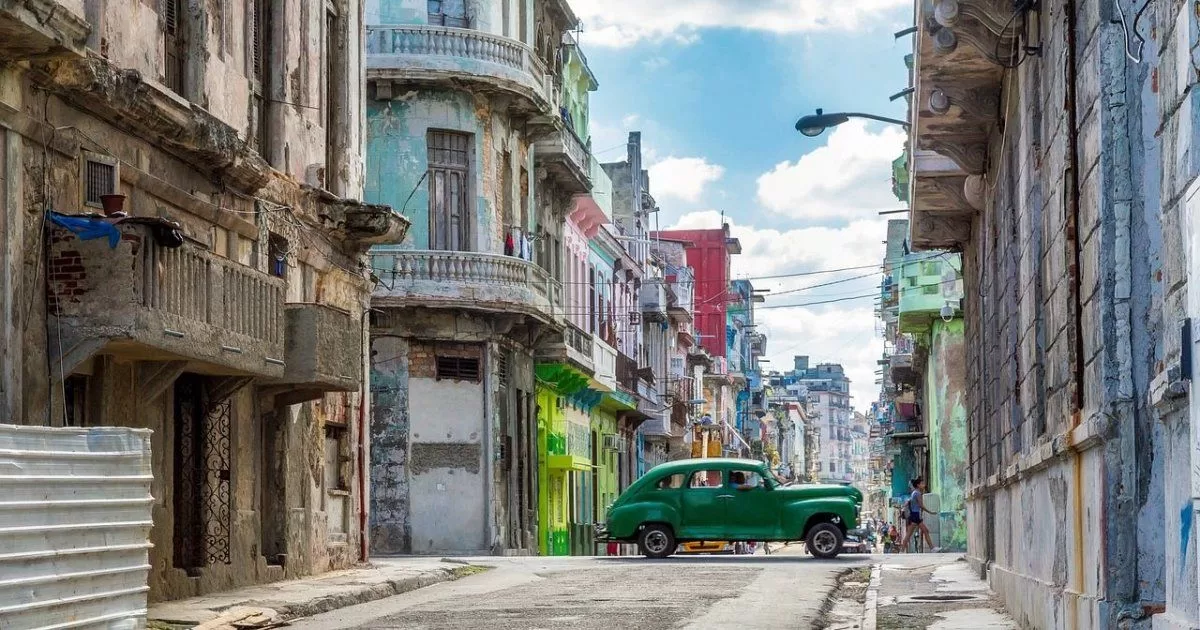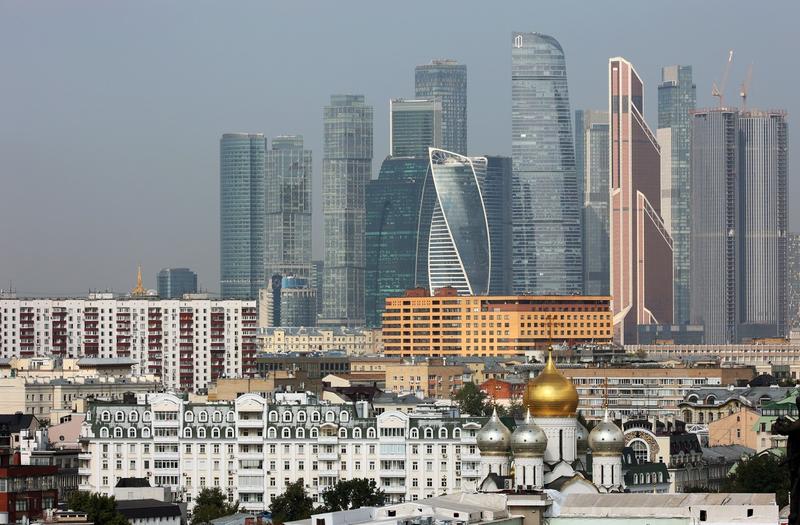On any corner of the busy Obispo Street you can hear a guateque (celebration) of street musicians, human statues with a piggy bank on the floor for passersby to deposit money -preferably currency- and corpulent black or mulatto women, dressed in traditional attire, necklaces of Santería and a wad of unlit tobacco in the mouth, which also predict the future with Spanish cards that dance a cajon rumba.
There is no shortage of beggars and children asking for money. In the midst of a terrible economic crisis, where breakfast, lunch and dinner are a luxury for 80 percent of Cubans and the peso is devalued every twenty-four hours, that part of the city seems like an open-air stall.
Not far from the colonial part, in the ruined portals of Reina Street, in the center of Havana, at every step you are offered imported construction materials; a ten-pound package of chopped chicken Made in the USA or a Bellingham pirate t-shirt for 3,000 pesos, almost 10 dollars in the informal market.
everything is sold
If you know the codes of deep Havana, you can buy Creole marijuana or the new trendy drug known as ‘the chemical’. Try your luck with a number in the illegal lottery, the famous ‘bolita’, or roll dice in the silot of a clandestine burle (gambling house) in San Leopoldo or Mantilla.
In the capital everyone sells something. Pensioners, suffocated by crazy inflation, sell old books and used clothes. Thirty-five years ago, the parents and grandparents of today’s adults exchanged the family’s jewelry and assets to the regime for a color television or a pair of shoes. Now, the grandchildren of those militiamen who applauded Fidel Castro exchange a pound of brown sugar that they give in the ration book for a packet of coffee mixed with peas or sell loose cigarettes on the corner of the neighborhood.
Osmany, owner of a Creole food cafeteria, analyzes the capital’s marketing. “There is a variety of people who sell retail who are not classified in that narrative that the foreign press calls private entrepreneurs. This segment, much more numerous than the 10,000 MSMEs or the thousands of small private businesses, has long defied the government’s laws that punished them with many years in prison, selling in the neighborhood the meat of a cow butchered the night before or a bag of cement stolen from a state warehouse.”
In Cuba, even in the period of supposed prosperity, back in the 80s, where with a worker’s salary you could buy natural yogurt or a liter of milk, the black market always worked with the precision of a Swiss watch. You could buy everything from a motor and assemble a raft to escape to Florida, to a Makarov pistol. In the days when private businesses were prohibited, in any Havana neighborhood they sold bread with pork steak for five pesos and cold beer for two pesos that came out the back door of the La Polar factory.
Osmany assures that “the clandestine businesses and the invention of the Cubans always surpassed the rulers. Everyone in Cuba, including State Security officers and Party officials, bought or sold in the underground market. The State, between inefficiency and the lack of foreign currency intended to maintain basic services, has done nothing more than legalize what had been operating illegally since Fidel Castro eliminated small businesses with his revolutionary offensive in 1968. Those who sold merchandise and trafficked With foreign currency they did it with two objectives: to have a better quality of life and when they had enough money, to leave the country. It is a cycle that has been repeated for 65 years. A business is invented and if it is lucrative, the person leaves the country, alone or with his family, preferably to the north.
You can not trust
Lucy, owner of a hostel in Old Havana, agrees that “anyone who has a business that works more or less well always has the option of emigrating, because this government cannot be trusted. At any moment they invent a decree or launch an operation against private enterprises. It would not be the first time. But some things have changed. Since 2013, when Cubans were able to leave, the majority of business owners have traveled and settled in the United States and Spain, among other nations.”
“There is a firmly rooted belief that the majority of businesses in Cuba operate thanks to the capital of relatives living in Miami. This is not so. The Mariel migratory stampede in 1980 and that of the rafters in 1994 have nothing to do with see with the following migratory waves where the majority had about 10,000 dollars to cover expenses before crossing the border into the United States. Many of those who have left at that stage left their businesses to relatives and continue managing the business of jointly”, he specifies and adds:
“I believe that in the last ten years a new class has emerged that has made money in Cuba, legal or illegal, it doesn’t matter, and that this capital has allowed them to settle in other countries and raise their families. The ideal would be to not have to leave. But you always have to have a revolving door. The same to convert the business from legal to clandestine or to sell everything and leave the country with 60 or 100,000 dollars. Anyone who does not include that escape option in his plans may end up imprisoned or prosecuted. It is already known that the government has always seen private businesses as the usual suspects,” concludes Lucy.
swallow business
Diario Las Américas spoke with several successful business owners and almost all of them have managed to obtain residency outside the Island. “If pitching gets tough, I don’t even have to pack my bags. It’s just getting a ticket and bye,” says the owner of a trendy paladar among the diplomatic corps in Havana.
The so-called swallow businesses swarm in Cuba. There are those who set up their ventures with the sole objective of emigrating in the medium term. Others save enough money for when the storm comes or the regime’s usual attacks on the private sector, to buy a ticket to Mexico, Panama, Canada or Spain in advance, where a few have managed to become nationalized.
There is also a fairly dynamic sector of more than 600,000 people, who work in private businesses and earn relatively high salaries that allow them to buy dollars and keep them. And then open your own business.
Remberto, a former bartender at a private bar, with the money raised began selling branded clothing and high-end phones such as Samsung or iPhone. I make purchases in Panama, Venezuela and Mexico. With the profits I opened a remittance agency and charged a ten percent commission. “I’m working until I have enough capital to settle in the United States.”
Everything to emigrate
Most Cubans, of course, do not have foreign currency or property to sell with the goal of emigrating. But they manage. Mirta prostitutes herself on WhatsApp and her dream is to hook up with “a yuma and dance the pole in Miami Beach.”
Sandy, a reggaeton player, says that his plan is to make an album and succeed in the United States. To raise money he traveled to Russia to work in construction. “In the end I ended up collecting snow on the streets of Moscow. “I hope to have six or seven thousand dollars when I return to Havana.”
Others enlist to fight as mercenaries in the Ukrainian war. The plan is to make money and then emigrate. The cost doesn’t matter. Not many want to fight to achieve democracy in Cuba, there are those who consider it a losing battle. Emigration on the Island functions as an industry.
@DesdeLaHabana



